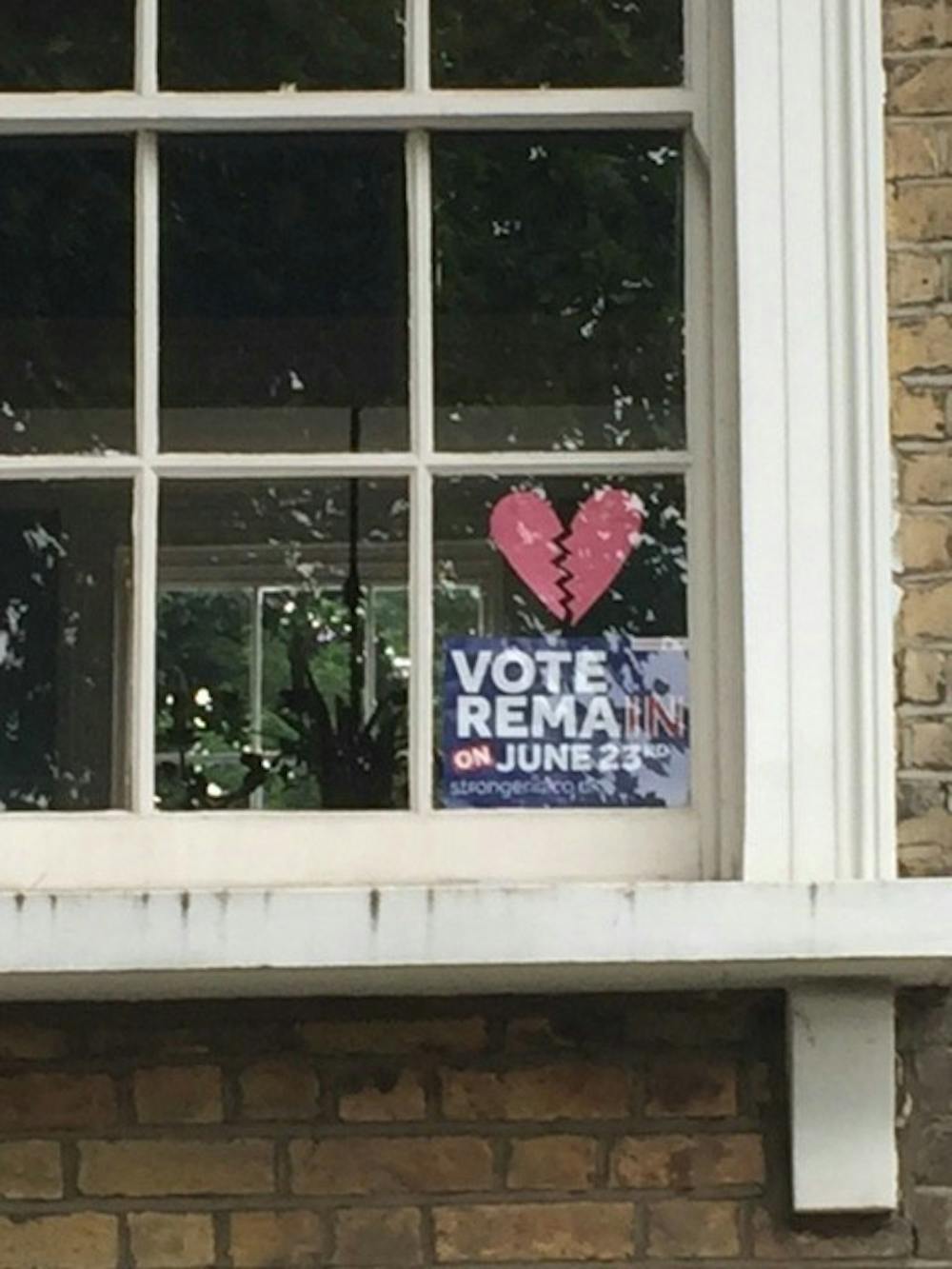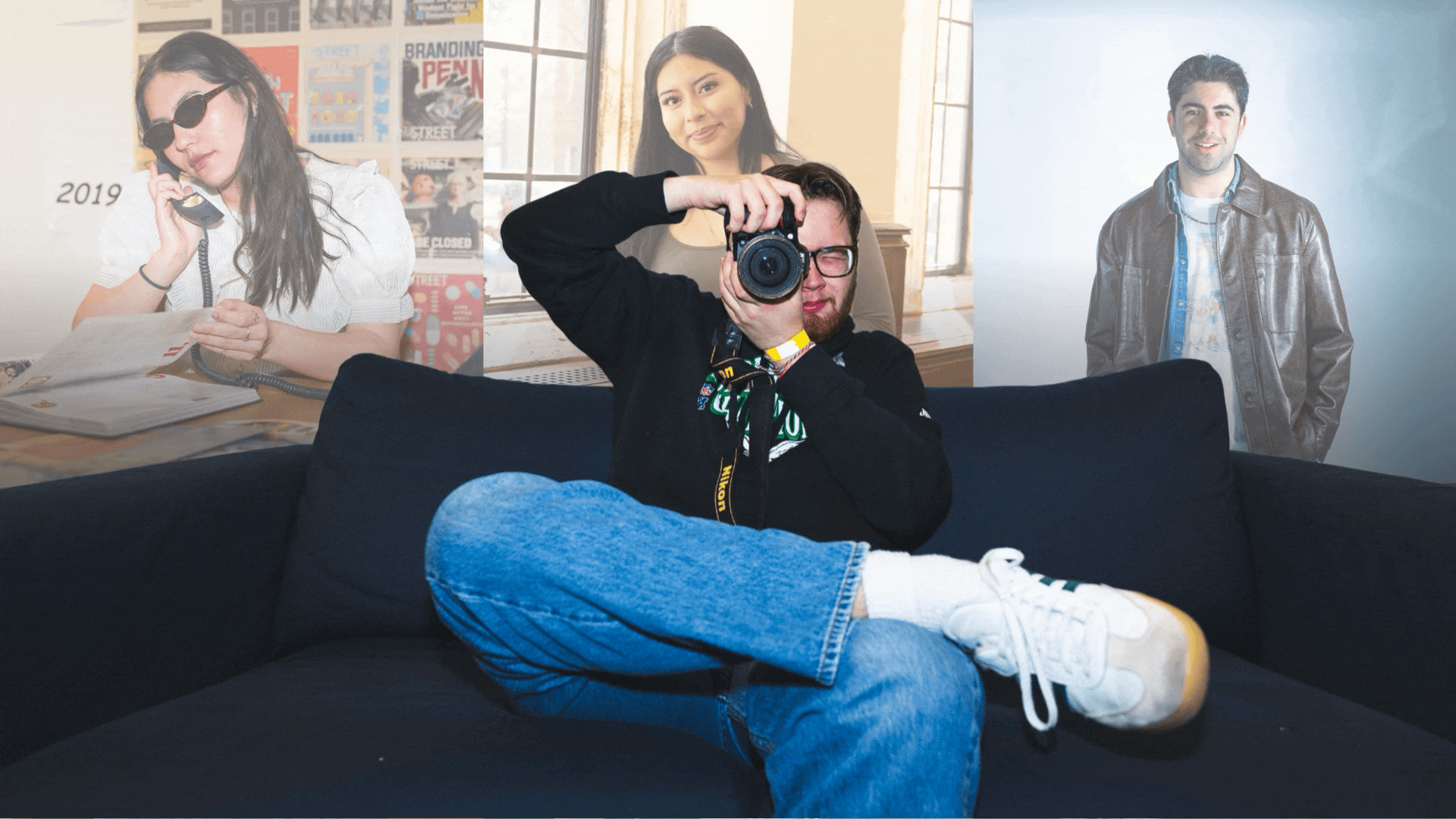On a Friday morning, I woke up to the news that I was no longer in the European Union, despite having moved to London at the end of May. Even though I still sound more Underwood (as in Frank), less Middleton (as in Kate, for those who didn’t tune in at 4 am to watch the Royal Wedding a few years ago), I can confirm that the word on the Street over here is quite literally, and physically, “Brexit.” The streets of London are littered with RemaIN pamphlets, “Vote In!” graffiti (now with a few faded “Still”s added to the top), decorates the sidewalks, and the tube during rush hour is full of London Evening Standards blaring headlines about the European breakup.

As I sit here writing this, it has been exactly a week since the UK voted to leave the EU by a slim majority of 48 percent (Leave) to 46 percent (Remain). To my world back in the US, this has been a shocking, perhaps disappointing, event across the pond; if you work in finance (but who at Penn does that lol *upside down smiley face emoji*), you may have already felt the weight of the world markets. However, in my world over here in London, Friday June 24th was a grave, sad, nightmarish day that left the city streets eerily silent. More than anything, my time living in London has brought to light just how important it is to move past “fact” (and yes, I do put fact in huge air quotes) and place yourself in the shoes of those people who are not just worried about the pound vs. the dollar, but are genuinely terrified for their future in this broken country.
I attended a barbecue the weekend after the Referendum, where the general mood was “what else can we do but this?” ("This" being standing under the gray – sorry, grey – sky, sipping Red Stripes and watching the footy with the lads). Perhaps the most honest, most sobering remark about Brexit came to me in a conversation with a 25-year-old guy from London, whose raw honesty and exhaustion rang true with the rest of the city’s mood. “Everything is not going to be completely terrible,” he said, “but everything is going to be noticeably worse.”
And that there is the truth. As I am here on the ground experiencing the direct impact of the Brexit decision, I can’t help but think about its terrifying parallels to the current state of American politics. When I return to Philadelphia, I will step into the vortex of arguably the next largest global decision– the 2016 presidential election. A decision split into two sides: those who are angry and fed–up with the establishment, pining for glory days that weren’t actually all that glorious, and those who are attempting to forge ahead into the future with open arms and open minds. Which was precisely the situation with Brexit.
My boyfriend, who grew up in all the glory of 90’s London, summed up the volumes that Brexit speaks about UK politics really well. Weirdly, if you take out references to the UK, you could basically apply the same quote to the States. “As the economic and social gap widens,” he said, “people feel disconnected and unimportant, to the point of despair. Although there were a number of people voting for Brexit on what they believed to be evidential and justified reasoning, the truth is that a significant proportion of the vote to leave was based on hate, prejudice and protest– three things that stem from a feeling of hopelessness.”
Both of the countries we call home have sat resting on our privileged laurels for a while now, allowing the social and economic rifts to widen without their being any physical, in–your–face consequences (well, consequences that have ultimately led to a massive shake up in the way *our* world works). Sure, the world is a scary place and all, but nothing will happen to us, nothing could happen to us! British millennials shook their head at the agonizingly close Brexit predictions in the week leading up to the vote, but at the end of the day just laughed at their parents' politics and knew that one day their opinion would rule.
But it won’t. The older generations of the UK, who won’t even be around for the full implications of the British exit, have decided the future for not only their children and their grandchildren, but also the children and grandchildren of all of Europe. As it turns out, in a maneuver that David Cameron thought would win him approval, Remainers thought would secure hope and acceptance as the status quo, and Leavers thought would win back their nation, the EU Referendum uncovered the scars of hopelessness and turned them into frustrated sighs of helplessness.
The Guardian recently dedicated a whole section to “curing the Brexit blues,” which, believe me, is a huge issue. As my boyfriend said, “The state of the UK is uncomfortably disconnecting and the once bright future of our nation is quickly dimming.” That attitude is the norm: to quote from the Guardian, “Can’t face getting up. Or showering. Or talking to people. Actually, it’s not that I can’t face talking to people; I have got nothing to say.” To me, only experiencing the Referendum opinions in London and never meeting a single person voting Leave, I wondered how in the world this was such a hard decision?

And that, I think, is the scariest thing and also one of the most important insights for me to impart on my fellow Americans – we CANNOT be content in our complacency. By all means, think and pray if thinking and praying is your jam, but then immerse yourself in the opposite opinion. I’m not asking you to change your mind, hell, I like to believe in democracy just as much as the next lad or lass. But I am begging you: Be willing to examine the other side. To pick it apart, to demand the full truth go dig it up yourself if you don’t trust what you’re given. We can’t afford to have another powerful nation at a loss for words, controlled by people wielding our futures as political swords, with citizens making one-sided decisions on matters that have incomprehensible implications.
The United Kingdom is United no longer (and no, England losing to Iceland in the Euros definitely didn’t help). As July 4th passes (*cough cough* the OG Brexit), I can’t help but think that the States really seem to be all that United either. I by no means am proposing that we all hold hands and sing kumbaya and agree on our fate. On the contrary, I think the key to keeping us United is to have the courage and the bravery to be able entertain another idea. Whatever that may look like for you as an individual. Because if we are not careful, if we are not hell-bent in our pursuit of a strong, whole, resilient country, we are going to crack straight down the middle just like the Crown. Please don’t let me sit here in a year’s time with nothing to say but “I told you so.”







